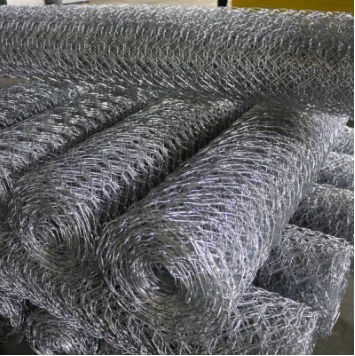metal mesh factory
Exploring the World of Metal Mesh Factories A Comprehensive Overview
In the modern manufacturing landscape, metal mesh factories have emerged as essential players in a myriad of industries. These facilities specialize in the production of various types of metal mesh products, including wire mesh, perforated sheets, and expanded metal. Metal mesh is widely utilized for applications ranging from architectural design to filtration systems and security solutions. This article delves into the intricate workings of metal mesh factories, their production processes, and the significance of their products across different sectors.
Understanding Metal Mesh
Metal mesh refers to a network of interwoven wires or perforations created from various metals, including stainless steel, aluminum, and brass. The versatility of metal mesh makes it an ideal material for numerous applications. It can be designed to meet specific requirements, such as strength, durability, and aesthetic appeal, depending on its intended use. From ensuring structural integrity in construction to enabling efficient airflow in HVAC systems, the utility of metal mesh is extensive.
The Production Process
The manufacturing process in metal mesh factories typically involves several stages, including raw material selection, fabrication, finishing, and quality control
.1. Raw Material Selection The first step in the production of metal mesh is selecting the appropriate raw materials. The choice of metal greatly influences the characteristics of the final product. Stainless steel is favored for its corrosion resistance, while aluminum is chosen for its lightweight properties.
2. Fabrication Once the raw materials are ready, various fabrication techniques are employed to create the mesh. This can include weaving processes, where wires are interlaced at specific intervals, or techniques such as welding, where metal strands are fused together to form a durable mesh. Perforation involves punching holes into sheets of metal to create patterns that serve various functional purposes.
3. Finishing After the mesh is formed, it goes through finishing processes that enhance its appearance and performance. This may involve treatments such as galvanization to prevent rust, powder coating for improved aesthetics, or anodizing for aluminum products to enhance corrosion resistance.
4. Quality Control Before the products are dispatched, they undergo rigorous quality checks to ensure they meet industry standards and client specifications. This phase is crucial, as it guarantees that the metal mesh will perform effectively in its intended application.
metal mesh factory

Applications of Metal Mesh Products
Metal mesh products find application across diverse sectors. In construction, they are used in reinforcing concrete, providing stability, and ensuring proper drainage. In the architectural domain, decorative metal mesh is popular for facades, balustrades, and screens, contributing to both functionality and visual appeal.
The filtration industry also heavily relies on metal mesh for creating filters that separate solids from liquids or gases. These filters are crucial in processes like water treatment, oil filtration, and air purification. The automotive industry utilizes metal mesh in components such as catalytic converters and oil filters, which are essential for vehicle efficiency and emissions control.
Moreover, metal mesh is widely used for security and safety purposes. It forms barriers, fences, and grilles protecting property and providing safety in various environments. Industries such as agriculture use metal mesh for storage and protection of crops, while the food industry uses it for hygienic processing and packaging solutions.
The Future of Metal Mesh Factories
The future of metal mesh factories looks promising, driven by advancements in technology and growing demand. Automation and robotics are increasingly being incorporated into production lines, improving efficiency and precision. Additionally, innovations in material science are leading to the development of new types of metal alloys that enhance strength and corrosion resistance.
Sustainability is also becoming a focus within metal mesh manufacturing. Factories are adopting eco-friendly practices, such as recycling scrap metal and reducing energy consumption during production. The trend towards sustainability is not only beneficial for the environment but also meets the growing market demand for greener products.
Conclusion
In summary, metal mesh factories play a vital role in producing versatile products that cater to various industries and applications. The intricate production processes involved in creating metal mesh ensure high-quality output that meets specific client needs. As technology evolves and sustainability becomes paramount, these factories are poised to adapt and thrive in an ever-changing manufacturing landscape. Whether it be in construction, filtration, or security, the impact of metal mesh is profound, and its relevance will continue to grow in the years to come.
-
Space-Saving Chain Fence Hacks Vertical Gardening with Cyclone MeshNewsJul.16,2025
-
Innovations in Iron Nail Wire Production for Modern ConstructionNewsJul.16,2025
-
Creative Uses of Wire Netting Fence in Modern Landscape DesignNewsJul.16,2025
-
Barbed Wire Fence Innovations in Anti-Climb TechnologyNewsJul.16,2025
-
Architectural Uses of Umbrella Nails for Aesthetic Roof DesignsNewsJul.16,2025
-
Architectural Uses of Razor Barbed Wire in Secure Urban DesignNewsJul.16,2025




